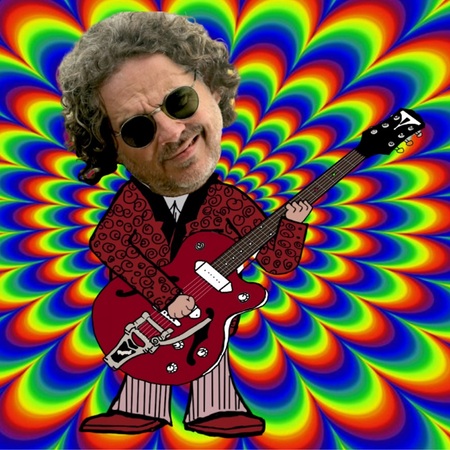
Blind Uncle Harry is known for his character-driven folk songs that pair sharp-eyed satire with raucous sing-along hooks. “Kimberly Kankowski” keeps that tradition intact while sharpening the comedy to deliver a satirical single that feels both immediate and mischievous.
Musically the song is simple by design, and that’s actually one of its strengths. At its core “Kimberly Kankowski” relies on percussive acoustic-guitar riffs to propel Harry’s narrative forward, and the arrangement gives the vocals room to deliver each punchline.
Where this song really shines is its lyricism, as it’s a character piece through and through. Harry paints Kimberly as a deliberately over-the-top caricature of liberalism, complete with neon hair, a ACAB tattoo, and a habit of dumpster-diving freeganism. The song gleefully mines her eccentricities and contradictions for both laughs and
social observation.
In the best moments, the writing nails the comedic dissonance between Kimberly’s urban-progressive identity and the conservative, small-town Tennessee setting she crashes into. Lines like “Her pronouns are her and she / But they’re ok with them and they” play with cultural shorthand in a way that’s cheeky without being outright hostile, poking fun at the performative flexibility of modern identity talk.
EARLY STREAMING ON BANDCAMP:
https://blinduncleharry.bandcamp.com/track/kimberly-kankowski
ONLINE:
https://blinduncleharry.com/
https://www.facebook.com/BlindUncleHarry/
The rhyme structures are simple and intentionally singsong, giving the verses a nursery-rhyme bounce that makes the surreal details like quinoa chips with artichoke, or a panic attack over an unverified organic banana, feel even more absurd. The chorus works as a comedic anchor, grounding each new setting with the same punchline about tempeh scarcity, which becomes increasingly funny as the incidents around it escalate.
The production on this track keeps the focus on Harry’s delivery as he leans into personality, using a gravelly, theatrical timbre to sell jokes and small emotional beats alike.
The mix prioritizes clarity of words, while verses are front-and-center so every line registers. There’s an intentional modesty in the sound engineering, meant to preserve the song’s identity as a folk-comedy tune.
Overall, “Kimberly Kankowski” is an excellent dose of what makes Blind Uncle Harry memorable: clever lyricism, a vocal performance that sells every line, and a production that chooses immediacy over polish so the joke and the character land. It’s playful and pointed satire that’s designed to stick in your head for hours afterward.
